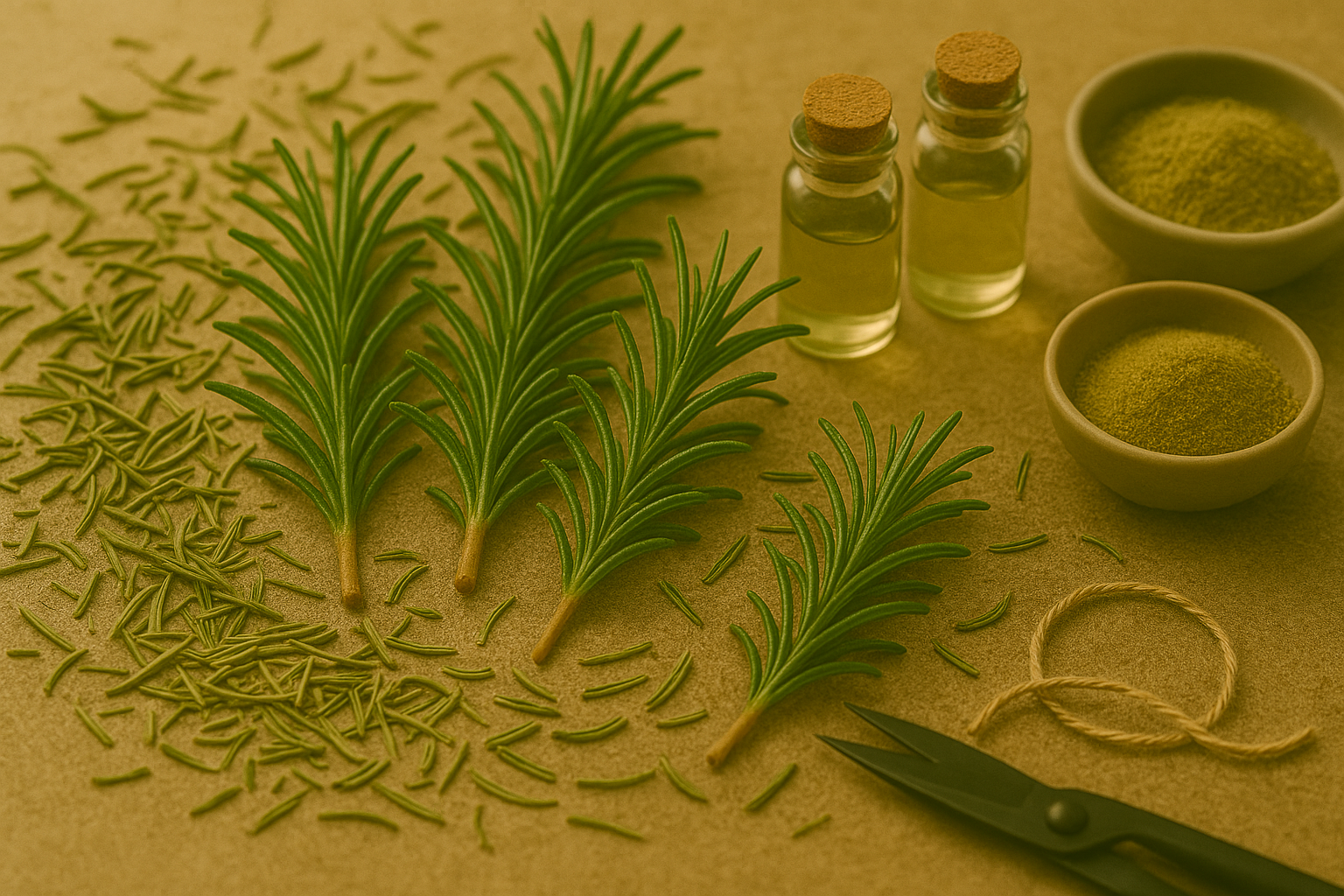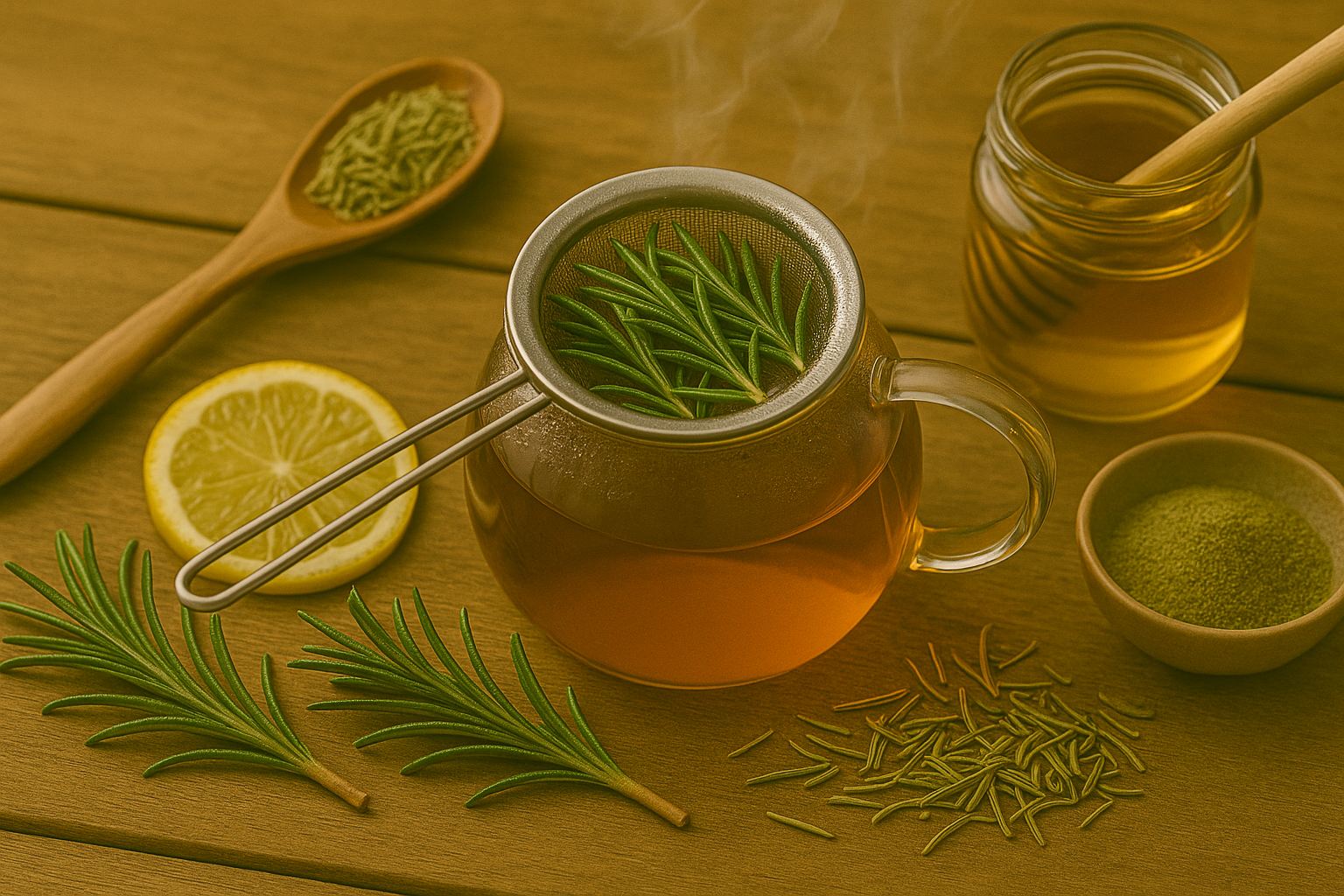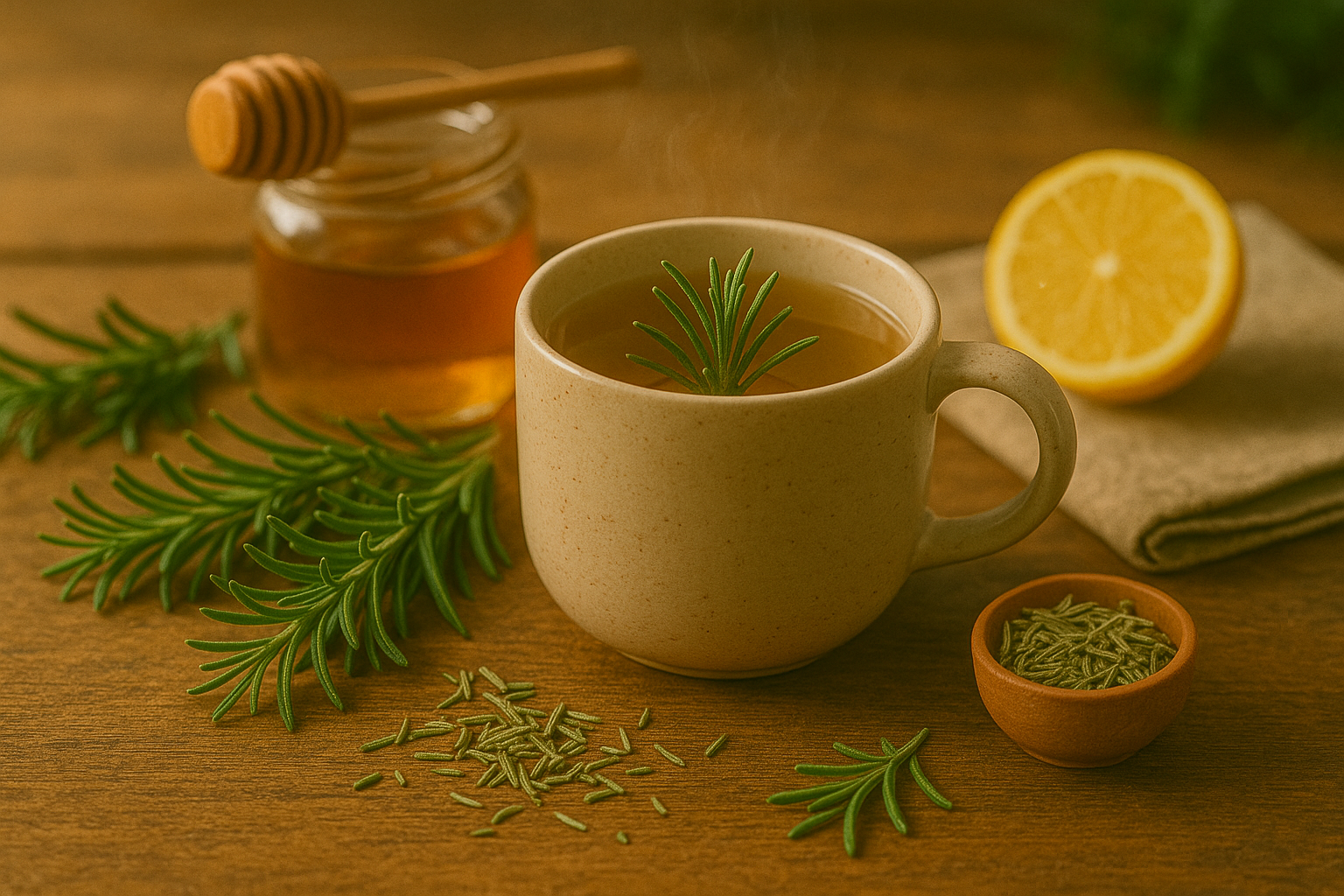Why Try Rosemary Tea?
Rosemary tea is more than just a soothing beverage—it’s a tradition steeped in centuries-old herbal wisdom. Used by ancient Greeks, Romans, and traditional healers worldwide, rosemary has long been valued for its uplifting properties and complex aroma. When brewed, rosemary tea delivers a distinctive piney, woodsy flavor with a touch of earthiness, setting it apart from popular herbal teas like chamomile or peppermint.
If you’re looking for something that awakens both mind and palate, rosemary is a refreshing change. Recently, this aromatic tea has caught the attention of wellness enthusiasts for its potential health benefits, from supporting memory to aiding digestion. Its subtle yet invigorating taste has made it a new favorite for those seeking alternatives to caffeine-heavy drinks.
In this article, we’ll explore what makes rosemary tea so special, unpack some of the exciting health claims through science-backed insights, and guide you through easy brewing tips so you can enjoy a cup at home. Whether you’re a tea lover or simply curious, rosemary tea deserves a spot on your must-try list.
Health Benefits of Rosemary Tea

Rosemary tea has a long history in traditional medicine, where it’s been used to sharpen the mind, ease digestion, and calm the nerves. Today, scientific studies are beginning to back up many of these claims, revealing that rosemary isn’t just a flavorful herb—it may also deliver tangible health benefits.
For example, one study published in the journal Therapeutic Advances in Psychopharmacology found that compounds in rosemary, like 1,8-cineole, could boost concentration and working memory—explaining why it’s often recommended for students or those tackling mentally demanding tasks.
In terms of digestion, rosemary tea has been shown to support healthy digestion by stimulating bile flow, which can help your body break down fats more efficiently and reduce bloating.
The calming effects associated with rosemary’s aroma have also been validated in small clinical trials, suggesting that sipping rosemary tea or simply inhaling its scent may ease stress and promote a sense of well-being.
On a cellular level, rosemary is packed with antioxidants such as rosmarinic acid and carnosic acid, which help neutralize harmful free radicals and may reduce inflammation in the body. This anti-inflammatory action has researchers exploring rosemary as a possible complementary option for conditions linked to chronic inflammation.
Despite these promising findings, it’s worth noting that individual responses can vary. Some people might experience noticeable improvements in focus or mood, while others may not feel much change at all. Factors like genetics, overall health, and even how the tea is prepared can influence its effects.
So, if you’re curious about adding rosemary tea to your routine, try starting with a cup in the afternoon when you need a mental boost, and pay attention to how your body responds—every experience is unique.
How to Brew the Perfect Cup

Brewing the perfect cup of rosemary tea is a simple yet delightful ritual, whether you’re using fresh sprigs or dried leaves. Start by boiling fresh, filtered water to just below a full boil—the ideal temperature is around 200°F (93°C).
If you’re using fresh rosemary, strip about one tablespoon of needles (roughly one sprig) per cup. For dried rosemary, use one rounded teaspoon per cup, as it’s more concentrated. Place the rosemary into a tea infuser or directly into your cup or teapot.
Pour the hot water over the rosemary and cover—this traps the aromatic oils. Let it steep for 5 to 7 minutes; longer steeping will create a stronger, more robust flavor but may turn slightly bitter. Once steeped, strain out the rosemary.
To enhance both the flavor and aroma, try muddling the fresh needles a little before steeping to release their oils. Add-ins like a slice of lemon bring a bright freshness, while a drizzle of honey balances rosemary’s piney notes with a touch of sweetness.
Fresh ginger slices, lavender buds, or even a splash of apple juice can also elevate the cup and offer variety. Serve your rosemary tea hot for comfort or pour it over ice for a refreshing twist.
By adjusting steeping time, rosemary amounts, or creative add-ins, you can personalize your perfect brew—enjoy experimenting until you find your favorite version.
Creative Serving Ideas
Preparing iced rosemary tea is a simple yet elegant way to cool off during summer. Start by steeping a few fresh rosemary sprigs in hot water for about 5–7 minutes. Then, remove the sprigs and let the tea cool to room temperature.
For a refreshing twist, add slices of lemon or orange, a handful of fresh berries, or even a few mint leaves before chilling in the refrigerator. Serve over ice with a garnish of rosemary and citrus wheels for a beautiful presentation.
Rosemary tea pairs especially well with citrus fruits, which lift its earthy notes, as well as mint or fresh berries for a naturally sweet burst.
Beyond sipping it plain, use iced rosemary tea as a base for creative summer cocktails or mocktails. Simply mix the tea with sparkling water, a splash of elderflower syrup, and more citrus for a non-alcoholic refresher, or add gin or vodka for a grown-up twist.
You can even freeze the tea into ice cubes with bits of fruit for a pretty, flavorful addition to any drink. These inventive ideas make rosemary tea a versatile staple for your summer beverage rotation.
Potential Side Effects & Safety Tips
While pineapple is a delicious and nutrient-rich fruit, it’s important to be aware of potential side effects and safety considerations before adding large amounts to your diet. Some individuals, such as pregnant or nursing people, should consult their healthcare provider before increasing pineapple intake. This is because its high vitamin C content and the enzyme bromelain can sometimes affect sensitive situations or interact with medications.
Those taking blood thinners, antibiotics, or other specific prescriptions need to be especially careful, as pineapple can interfere with the absorption or effectiveness of certain drugs. Allergy sufferers should also note that pineapple may trigger symptoms similar to hay fever or cause mouth irritation, especially if they have latex allergies due to cross-reactivity.
Eating too much pineapple can sometimes lead to digestive discomfort, such as diarrhea, stomach pain, or a sore mouth caused by bromelain’s enzyme action. To stay safe, it’s a good idea to start with small portions—one or two moderate servings a day is generally considered safe for most healthy adults. Always wash the fruit thoroughly and avoid unpasteurized pineapple juice to reduce the risk of foodborne illness.
Most importantly, if you have any health conditions or concerns, discuss your pineapple intake with your doctor or nutritionist to get tailored advice. That way, you can enjoy pineapple’s refreshing taste and benefits without any unwanted surprises.
Frequently Asked Questions About Rosemary Tea
Many people wonder about rosemary tea’s caffeine content. The good news is that it’s naturally caffeine-free, making it an excellent choice for anyone looking to cut back on stimulants or enjoy a soothing drink in the evening.
The best time to drink rosemary tea often depends on your personal routine. Some enjoy it in the morning for a gentle, herbal start, while others prefer it after meals to aid digestion.
To keep your rosemary tea fresh, store the dried leaves in an airtight container away from light and heat.
Unlike more common herbal teas like chamomile or peppermint, rosemary tea stands out with its slightly piney, earthy flavor and refreshing aroma, which can feel both invigorating and calming.
If you’re new to it, try experimenting with how you brew it—steeping longer for a stronger flavor, or adding extras like a slice of lemon, a bit of honey, or even blending with mint or lavender. Everyone’s palate is unique, so don’t be afraid to tailor your cup to what tastes best for you.
Whether you drink it hot or iced, rosemary tea is a versatile herbal drink worth exploring.
